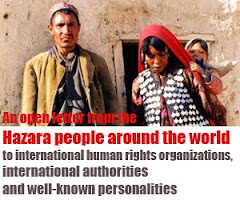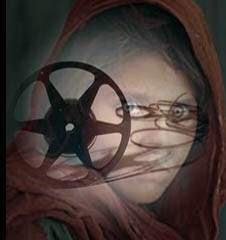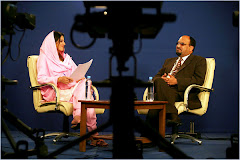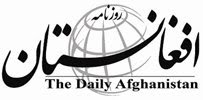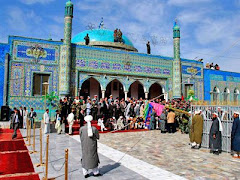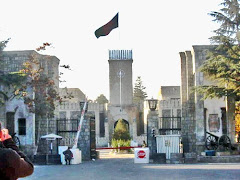While Tolo TV continues its dispute with the Ministry of Information and Culture over the broadcast of Shakira’s concert during the Eid days, the government has arrested another journalist, this time for reprinting a Dari translation of the Holy Quran.
Dr. Ahmad Ghaus Zalmai, a famous Afghan journalist in the 1990s, and currently director of the National Union Journalists of Afghanistan, has been arrested for reprinting “Quran e Paak,” a version of the Holy Quran translated entirely from Arabic into Dari.
This Dari version was first published in the USA by a person called Bakhtiar. Before reprinting it in Afghanistan, Dr. Ghaus Zalmai discussed the project with credible religious scholars.
Since the publication “Quran e Paak” in Afghanistan this year, there have been demonstrations and objections against its publisher and editor by religious societies, mainly in Kabul. The religious scholars who have demonstrated against the publication of this book claim that it contains mistakes and misinterpretations of the Holy Quran.
Dr.Ghaus Zalmai was arrested and imprisoned after attempting to flee the country through its border with Pakistan, reports Abdul Jabbar Sabet. The arrest, carried out on the orders of the Attorney General of Afghanistan, occurred after those opposed to the book’s publication pressured the government to punish those responsible.
The question that arises here is: why is the government not at least this keen to arrest those guilty of the bombings, corruption, and human and drug trafficking that put the nation in danger? They place more pressure on the press and media activists than on those who commit such acts. Publishing the Holy Quran in Dari is not a crime. It is an excellent step toward an ideal Islamic society.
The people opposed to the Dari translation of the Holy Quran claim that the verses (Ayaat) of the Holy Quran, which are spoken by God, must be in the original language, the way they came to the world. However, the majority of Afghans who want to read the Koran are unable to read Arabic. This is why, day by day, people are becoming distant from the real Islam as written in the Holy Quran. Thus there is need for such translated versions, not only in Dari but in Pashto, Uzbeki, Balochi and all other languages so that every Afghan can use its messages in their daily lives.
About a month ago Tolo TV, which is a private television channel in Afghanistan, broadcast Shakira’s concert during Eid. Soon after the Ministry of Information and Culture put out a press release warning Tolo and all other television channels not to broadcast such shows in the future, as they are forbidden in Islam and are considered un-Islamic.
Seeing all this, we are concerned that fundamentalism is taking root again in the bureaucracy of the Afghan government, after five years of struggle against it. We are afraid as we wonder which direction our government will move: toward democracy or fundamentalism.
by Amin Wahidi
editorial assistance by Nathan Hartle
Tuesday, November 20, 2007
Subscribe to:
Comments (Atom)






